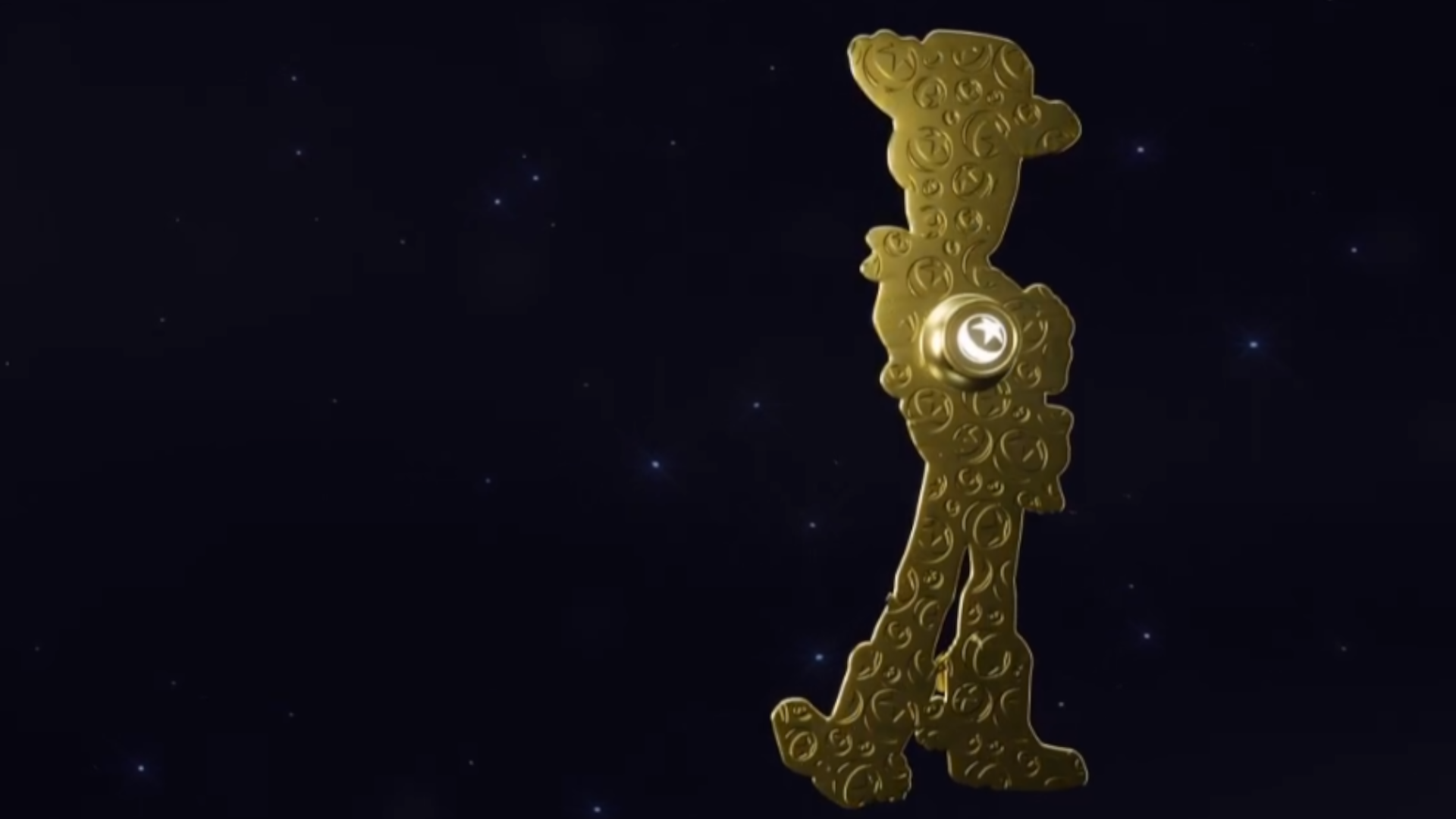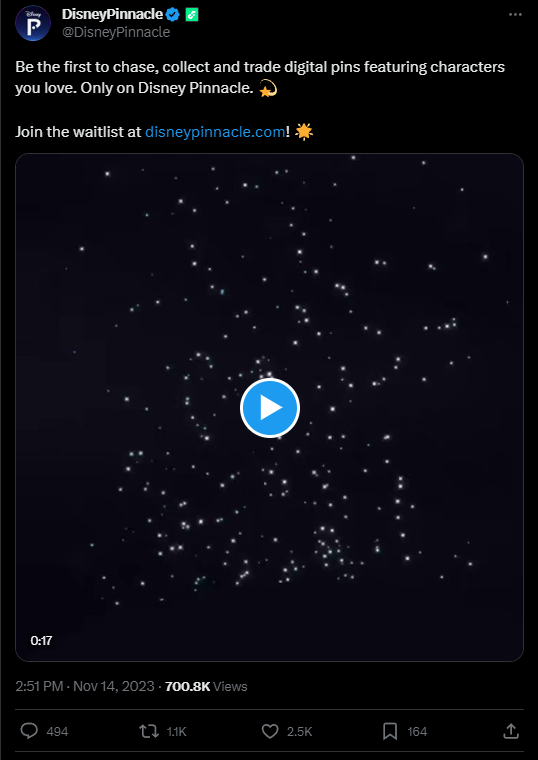Disney awkwardly shuffles around the term 'NFT' with its 'digital pins' which are, you guessed it, still NFTs
Tough to pin down why.

The internet's honeymoon phase with NFTs has long since passed—we probably won't see them widespread in games any time soon—owing to a decline in anyone really caring about them.
The most notable thing about 'Bored Apes' these days is that a concert blasted its poor attendants with enough UV lighting to actually injure them. Oh, and the creator of a knock-off "Mutant Ape Planet" is facing up to five years in prison. But don't worry, Disney's new "digital pins," as announced on the Disney Pinnacle Twitter account, totally aren't NFTs. Right? Right?

Turns out, yes, they are (thanks, Verge). The pins are being produced in partnership with Dapper Labs, which still believes the blockchain "will reshape how we use and interact with digital worlds", a sentence I have heard a lot. If our digital worlds do indeed get reshaped in the future, I'll eat some humble pie, but I'm not exactly holding my breath.
Granted, Dapper Labs were pulling off some big things back when NFTs were the talk of the Twitter feed. CryptoKitties—which former PC Gamer features producer Nat Clayton even mentioned in their great NFT write-up back in 2021—were being traded for a whole lot of moolah. Now a CryptoKitty is barely worth more than the cost of trading one.
Beyond turning beloved Disney characters like Mickey Mouse, Goofy, and Darth Vader into marketable cryptopins, both the announcement and the website are pretty sparce. Not to mention, devoid of the big bad NFT word. Still, if the idea of getting an ultra-rare jpeg of Donald Duck (or, well, a 3D model of a pin of him) floats your boat, you can sign up for a waitlist.
Divorced from the NFT wasteland, this doesn't seem like a silly idea on an executive meeting room whiteboard. Disneyland itself already has a pin-trading "guest activity", allowing collectors to swap their limited-edition pins (bought within the park, of course) in a controlled space.
Obviously, like anything limited-edition, people were so… 'enthusiastic' about them, Disney had to change the rules and stop organised pinheads from filling up the park benches with their illicit operations. After seeing the chaos prompted by the Pokemon Van Gogh card, nothing surprises me anymore.
The biggest gaming news, reviews and hardware deals
Keep up to date with the most important stories and the best deals, as picked by the PC Gamer team.
Point being, there's already an established base for this sort of thing. Whether these pins'll revive the NFT market—something I'd bet against, personally—remains to be seen. Likely, it'll be swept under the rug just as Disney's doing to the term itself.

Harvey's history with games started when he first begged his parents for a World of Warcraft subscription aged 12, though he's since been cursed with Final Fantasy 14-brain and a huge crush on G'raha Tia. He made his start as a freelancer, writing for websites like Techradar, The Escapist, Dicebreaker, The Gamer, Into the Spine—and of course, PC Gamer. He'll sink his teeth into anything that looks interesting, though he has a soft spot for RPGs, soulslikes, roguelikes, deckbuilders, MMOs, and weird indie titles. He also plays a shelf load of TTRPGs in his offline time. Don't ask him what his favourite system is, he has too many.

